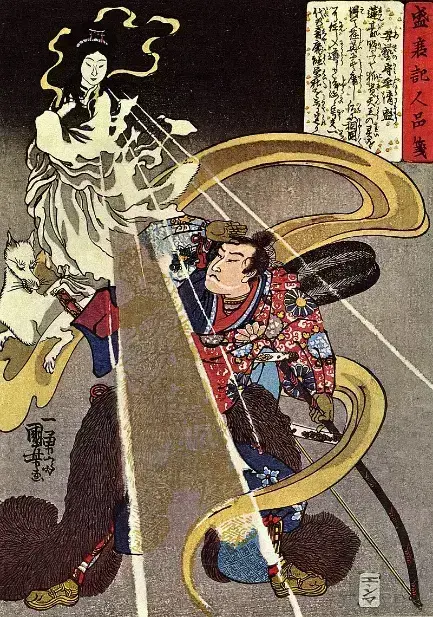Inari Ōkami

Inari Ōkami (Japanese: 稲荷大神), also called Ō-Inari (大稲荷), is the Japanese kami of foxes, fertility, rice, tea, sake, agriculture and industry, and general prosperity and worldly success. Inari is one of the principal kami of Shinto. The name Inari translates as "rice-bearer." In earlier Japan, Inari was also the patron of swordsmiths and merchants. Represented as both male and female, Inari is sometimes viewed as a collective of three or five individual kami. Worship of Inari appears to have begun with the founding of a shrine at Inari Mountain in 711 CE, though some scholars believe it started in the late 5th century.
By the 16th century, Inari had become the patron of blacksmiths and protector of warriors, with worship spreading across Japan during the Edo period. Inari is venerated in both Shinto and Buddhist traditions. More than one-third (40,000) of Japan's Shinto shrines are dedicated to Inari. Modern corporations, including cosmetic company Shiseido, continue to honor Inari as a patron kami, maintaining shrines atop their corporate headquarters.
Inari's foxes, or kitsune, are pure white and serve as messengers, though scholars believe that in ancient times, the fox itself was likely worshipped as the kami of rice.
According to myth, Inari, as a megami (female Kami), came to Japan during its creation amid a devastating famine. "She descended from Heaven riding on a white fox, and in her hand she carried sheaves of cereal or grain. Ine, the word now used for rice, is the name for this cereal. What she carried was not rice but some cereal that grows in swamps. According to legend, in the ancient times Japan was water and swamp land."
Foxes roaming in rice fields may have inspired the association with Inari, as they appeared to be inspecting the crops. To express gratitude, farmers offered red rice and fried bean curd to the foxes.